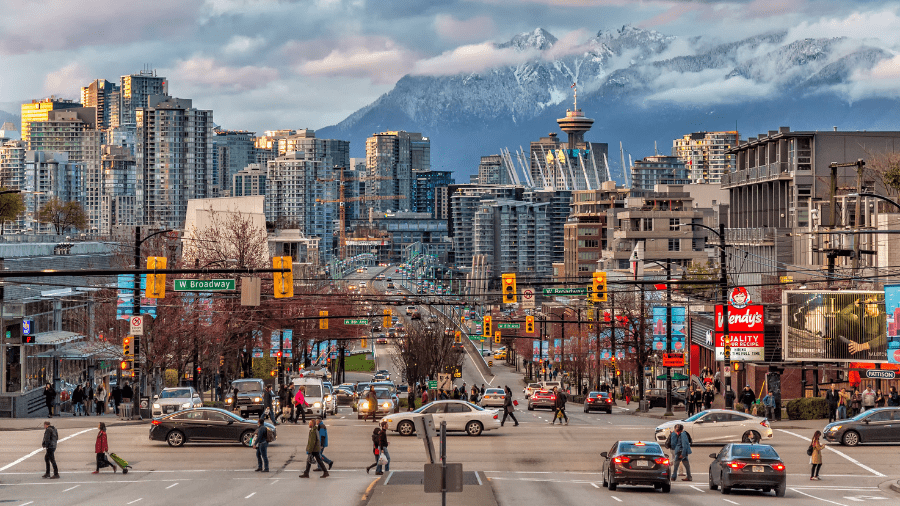This article originally appeared in the Vancouver Sun.
By Jerome Gessaroli, February 1, 2024
Vancouver residents face a major economic hurdle in the form of a quickly growing property tax burden. The problem is severe. Using city property tax data, Statistics Canada CPI data, and International Monetary Fund (IMF) inflation forecasts, I estimate that property taxes have increased by over 70 per cent since 2011, compared to overall inflation of 34 per cent. Property taxes are inflating twice as fast as everything else. Vancouver taxpayers on average paid $2,100 more in property taxes from 2011 to 2023 than they would have if tax increases had been limited to the rate of inflation.
More concerning is the city’s forecast of an eight per cent average annual property tax increase until 2027. Based on IMF inflation forecasts, the data indicates that between 2024 and 2027, city taxpayers could potentially incur an additional $3,800 in taxes compared to a scenario where tax increases are limited to the rate of inflation. The city’s fiscal trajectory is deteriorating and is increasingly unsustainable for the city’s residents.
Thankfully, the mayor of Vancouver established a Budget Task Force last year. The task force’s objective was to recommend ways the city could provide core services while limiting property tax increases to that of inflation.
The Budget Task Force, released Jan. 17, introduced 17 recommendations. Two of these recommendations stand out: the city should define its core responsibilities and it should carefully analyze any spending beyond those responsibilities. This approach aims to ensure the city fulfils its primary functions while limiting expenditures for programs that fall under provincial or federal authority.
Historically, the city had the authority to generate taxes and fees to cover traditional responsibilities, such as utilities, parks, and civic facilities. However, service creep and the downloading of responsibilities from the federal and provincial governments have financially burdened the city and its residents over time.
The report wisely refrains from specifying which services the city should no longer fund. That is a decision for the mayor and council.
Services such as social housing, child care, health care, and emergency aid — while important — are traditionally provincial and federal responsibilities and these higher levels of government should be covering the costs.
Other non-core programs, including climate action and social justice, should be critically evaluated. Again, federal and provincial governments have authority over legislation and policy setting for these issues. The city still has a role in these areas, but it should be more narrowly focused. For instance, climate adaptation plans should be a core municipal responsibility, since they cover city concerns over coastal flooding and urban heat-island effects.
Opposition councillors expressed initial concerns about the Budget Task Force’s report. Councillor Peter Fry stated: “… we’re a local government and our primary interest is not just profitability, but it’s also about things like equity and fairness and good governance.”
His response is perplexing. Vancouver’s primary interest has never been profitability. Instead of emphasizing core services like quality police, fire, and library services, Fry mentions equity and fairness. While he is correct about good governance being a primary interest, a core principle of good governance is the ability to provide high-quality services at sustainable taxation levels.
Opposition Coun. Christine Boyle said the report’s recommendations “…range from cliché to concerning, and a little comical.” The report is not comical — even if one does not agree with all of its recommendations. A poll just released by Angus Reid finds that 61 per cent of Canadians are finding it challenging to manage increases in the cost of living. Given Vancouver’s typical ranking as the most expensive or second most expensive city in the country, its taxes will affect the financial well-being of the average city resident.
The report also makes operational recommendations. For instance, it highlights Vancouver’s Property Endowment Fund (PEF), valued at $5.7 billion. The PEF manages city assets to generate revenue for municipal initiatives, with its most recent return being around 0.2 per cent. This presents an opportunity for the city to renew PEF’s mandate and empower city employees and managers to enhance the fund’s returns to better fund city initiatives.
Thankfully, city council unanimously approved creating a committee to study the report and present options for implementing its recommendations. I commend the council for unanimously deciding to move forward — it is a good first step.
A possible second step: following economist Thomas Sowell’s advice, Vancouver should hold municipal elections the day after property taxes are due. The timing might make our city councillors think twice before significantly raising taxes.
Jerome Gessaroli is a senior fellow at the Macdonald-Laurier Institute and leads The Sound Economic Policy Project at the British Columbia Institute of Technology.






